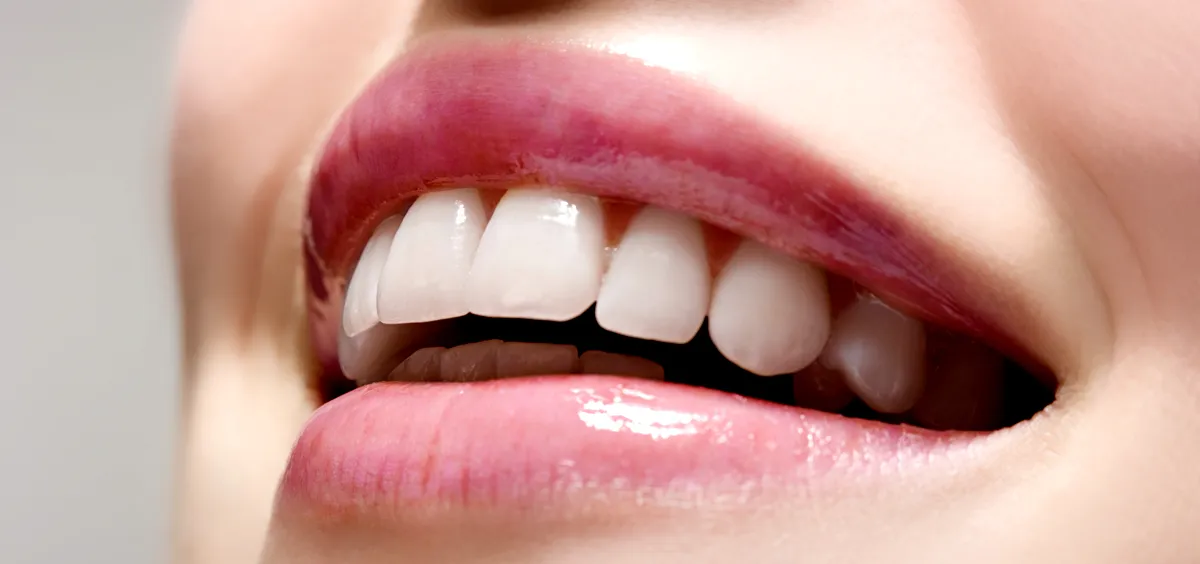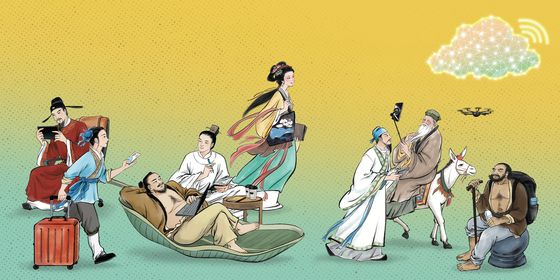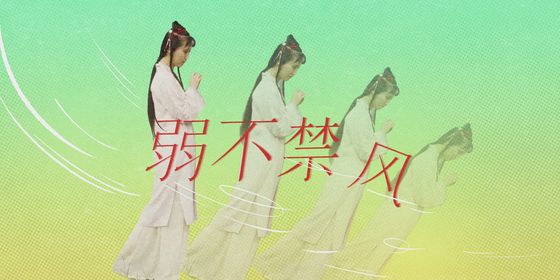Sparkling turns of phrase about teeth
Nobody enjoys a visit to the dentist’s chair, but visit them the world must—and has done for a very long time.
In ancient times, Chinese people invented many ingenious methods to preserve their pearly whites and maintain oral hygiene, including chewing willow wigs or cloves. During the Han dynasty (618 – 907) one procedure to cure tooth decay involved administering acupuncture and soup.
Though more scientific, and less painful, methods of dental practice are used today, China’s dental history has bred numerous chengyu about teeth, 牙(yá) or 齿 (chǐ) in Chinese. TWOC introduces some sparkling examples, in time for Dentist’s Day on March 6, below:
明眸皓齿 Bright eyes and white teeth
Beauty requires bright eyes and glistening teeth, at least according to this chengyu. In the Three Kingdoms era (220–280), the poet Cao Zhi wrote in his “Ode to the Goddess of the Luo River” that “her white teeth are shining, and her bright eyes are extremely attractive and perfect (皓齿内鲜,明眸善睐).” This phrase is still used to today to describe a beautiful woman.
He can’t forget that pretty girl with bright eyes and white teeth.
Tā wàng bù liǎo nàge míngmóu-hàochǐ de gūniang.
他忘不了那个明眸皓齿的姑娘。
伶牙俐齿 Smart teeth
This chengyu is used to refer to someone who speaks with eloquence, similar to saying someone has the gift of the gab.
I must admit you have the gift of gab.
Wǒ bìxū chéngrèn nǐ língyá lìchǐ.
我必须承认你伶牙俐齿。
铁嘴钢牙 Iron mouth and steel teeth
Similarly, if someone’s mouth and teeth are made of metal, it’s no surprise to also find they have a silver-tongue. The TV series Bronze Teeth (《铁齿铜牙纪晓岚》) adopted this chengyu to describe its hero Ji Xiaolan’s eloquence.
He really has an iron mouth and steel teeth; no one can out-talk him.
Tā kě zhēnshì tiězuǐ-gāngyá, méirén shuōdeguò tā.
他可真是铁嘴钢牙,没人说得过他。
牙尖嘴利 Pointed teeth and sharp mouth
There’s can be a fine line between a silver tongue and a sharp tongue. For those who speak too harshly, you can use this derogatory phrase.
Don’t be so mean; others will remember what you said.
Bié zhème yájiān-zuǐlì de, biérén huì jìde nǐ shuō le shénme.
别这么牙尖嘴利的,别人会记得你说了什么。
唇齿相依 As close as lips and teeth
This chengyu is a metaphor for a close relationship of interdependence. It is widely held that Mao referred to the relationship between China and North Korea in this way.
These two countries are as close as lips and teeth; they will not break their alliance.
Zhè liǎnggè guójiā chúnchǐ xiāngyī, tāmen búhuì wéibèi méngyuē.
这两个国家唇齿相依,它们不会违背盟约。
唇亡齿寒 If the lips are gone, the teeth will be cold
Mao may have used this idiom instead to refer to Sino-North Korea relations, which means that if one of two interdependent things falls, the other is in danger.
When they got into trouble, a lot of rival companies offered help, because they all know what would happen to the teeth if the lips are gone.
Tāmen shēnxiàn kùnjìng shí, xǔduō duìshǒu gōngsī dōu shēnchū le yuánshǒu, yīnwèi tāmen dōu dǒngdé chúnwáng-chǐhán de dàolǐ.
他们深陷困境时,许多对手公司都伸出了援手,因为他们都懂得唇亡齿寒的道理。
以牙还牙 A tooth for a tooth
This retaliatory chengyu is one of the few that did not originate from an ancient Chinese story. Instead, it comes from the ancient Babylon’s Code of Hammurabi, which says “eye for eye; tooth for tooth; hand for hand, foot for foot.” In Chinese, the first two parts, “以眼还眼, 以牙还牙 (yǐ yǎn huán yǎn, yǐ yá huán yá),” are used to describe retaliation.
I will definitely take a tooth for a tooth, and won’t let him off.
Wǒ yídìng yào yǐ yá huán yá, jué bú fàngguò tā.
我一定要以牙还牙,绝不放过他。
没齿难忘 Remember even after one’s teeth fall out
By contrast, this chengyu is used to express undying gratitude.
I’ll remember your kindness even after my teeth fall out.
Nǐ duì wǒ de ēnqíng, wǒ mò chǐ nánwàng.
你对我的恩情,我没齿难忘。
Cover image from VCG












